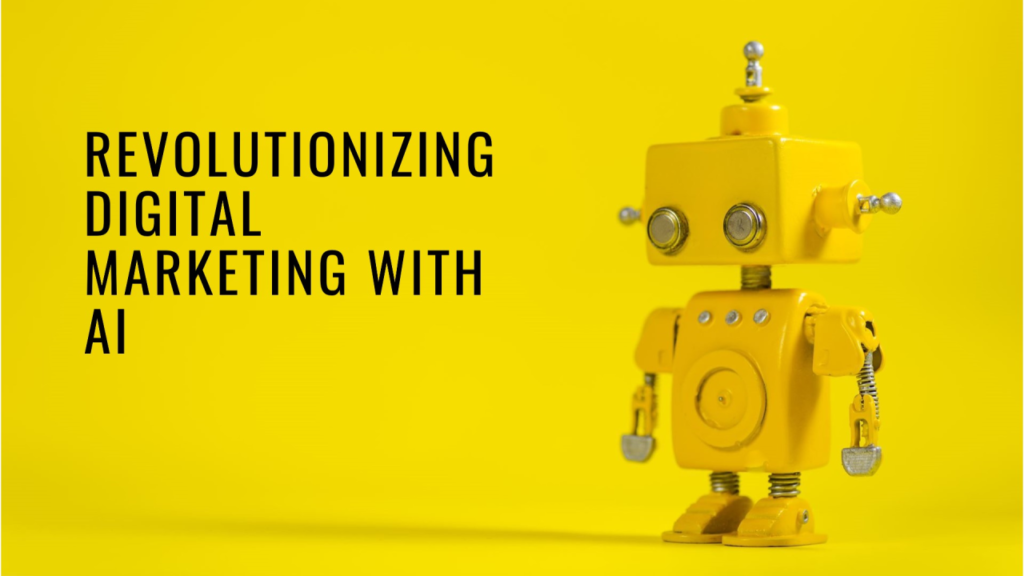One factor stands out as a transformative force: artificial intelligence (AI). Over the past decade, AI has revolutionized how businesses connect with their audiences, analyze data, and optimize campaigns. From personalized content recommendations to predictive analytics, AI-powered tools are reshaping the way marketers operate. Let’s delve into the ways AI is changing digital marketing and shaping its future trajectory.
Enhanced Customer Insights
AI enables marketers to gain deeper insights into consumer behavior and preferences. By analyzing vast amounts of data from various sources such as social media, website interactions, and purchase history, AI algorithms can identify patterns and trends that human marketers might overlook. This data-driven approach allows for more accurate audience segmentation and personalized marketing strategies.
Personalized Content Recommendations
One of the most significant impacts of AI in digital marketing is the ability to deliver personalized content recommendations. AI algorithms can analyze user behavior in real-time to suggest relevant products, articles, or videos, increasing engagement and driving conversions. Whether it’s recommending products based on past purchases or suggesting articles based on browsing history, personalized recommendations enhance the customer experience and foster brand loyalty.
Predictive Analytics
AI-powered predictive analytics tools enable marketers to forecast future trends and behaviors with remarkable accuracy. By analyzing historical data and identifying patterns, these algorithms can anticipate customer needs, optimize marketing campaigns, and allocate resources more effectively. Predictive analytics empower marketers to make data-driven decisions, reducing guesswork and maximizing ROI.
Chatbots and Virtual Assistants
Chatbots and virtual assistants powered by AI have become increasingly prevalent in digital marketing. These intelligent bots can interact with customers in real-time, answering questions, providing assistance, and guiding users through the sales funnel. By leveraging natural language processing (NLP) and machine learning algorithms, chatbots can deliver personalized experiences at scale, enhancing customer satisfaction and driving conversions.
Automated Advertising
AI has revolutionized the world of online advertising by enabling automated ad targeting, bidding, and optimization. Platforms like Google Ads and Facebook Ads use machine learning algorithms to analyze user data and deliver ads to the most relevant audiences. By automating the ad buying process, marketers can save time and resources while improving campaign performance and ROI.
Content Creation and Curation
AI-powered tools are transforming the way content is created and curated in digital marketing. From generating blog posts and social media captions to curating personalized email newsletters, AI algorithms can assist marketers in producing high-quality content more efficiently. Natural language generation (NLG) algorithms can generate human-like text based on predefined parameters, enabling marketers to scale their content efforts and engage audiences across multiple channels.
Sentiment Analysis
Understanding customer sentiment is crucial for crafting effective marketing campaigns and brand messaging. AI-powered sentiment analysis tools can analyze text data from social media, customer reviews, and other sources to gauge public opinion and identify emerging trends. By monitoring sentiment in real-time, marketers can respond promptly to customer feedback, mitigate potential PR crises, and capitalize on positive sentiment to boost brand reputation.
Hyper-Personalization
AI enables hyper-personalization by delivering targeted messages and offers to individual customers based on their preferences, behaviors, and demographics. By harnessing data from multiple touchpoints, AI algorithms can create personalized experiences across websites, email campaigns, and digital ads. Hyper-personalization not only increases engagement and conversions but also strengthens customer relationships and loyalty.
Ethical Considerations
While AI offers numerous benefits for digital marketers, it also raises ethical concerns regarding data privacy, bias, and transparency. Marketers must ensure that AI algorithms are trained on diverse and representative datasets to avoid perpetuating bias or discrimination. Additionally, transparency in AI-driven decision-making is essential to build trust with consumers and maintain ethical standards in digital marketing practices.
In conclusion, AI is fundamentally changing the landscape of digital marketing, empowering marketers to gain deeper insights, deliver personalized experiences, and optimize campaigns with unprecedented precision. By leveraging AI-powered tools and technologies, businesses can stay ahead of the curve and drive sustainable growth in an increasingly competitive marketplace. However, it’s essential to approach AI adoption ethically and responsibly, ensuring that it enhances rather than undermines the customer experience. As AI continues to evolve, its impact on digital marketing will only grow, shaping the future of the industry in profound ways.

